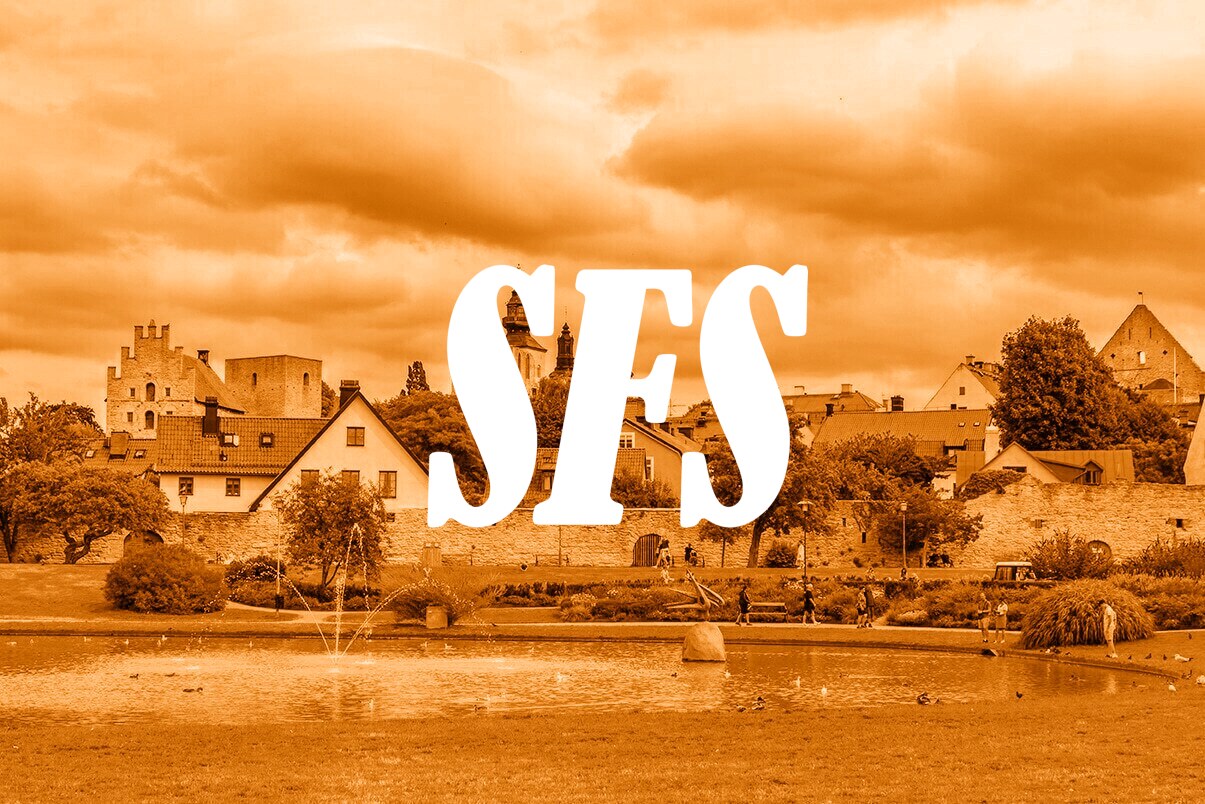SFS is presidium Jacob Färnert and Klara Dryselius summarize Almedalen 2023, which was packed with student and university politics!
One of the last parts of the 2022/23 business year for SFS was to go to Almedalen! It is a unique meeting place where politicians, organizations and stakeholders from all over the country gather to discuss social issues. In this landscape, there are several activities dealing with student and higher education policy, and we are pleased that there is great interest in the higher education sector, higher education, research and skills provision. It is also fun that we are invited to several contexts to give the students' perspective. To Almedalen we also had with us Linn Svärd, outgoing SFS chair, Linnéa Carlsson, chair of the doctoral committee and political secretaries Amanda Beckman and Mathilda Fredriksson from the chancellery.
Meet with others in the sector and industry
A fitting aspect of Almedalen is that many people from our sector and industry are present. It allows us to meet for short meetings because we are all in the same place and can more easily take short meetings which is not usually the case. We met, among other things, representatives from Sweden's student unions, which represent student unions at upper secondary schools, to talk about student and student influence. Our sectors have started to meet more and more during the spring due to the ongoing debate about lack of prior knowledge and admission to higher education.
We also met the Saco student council, which is a union student organization. SFS and the Saco student council have collaborated on several issues over the years. Last year we wrote one debate article about the financial situation of students with children.
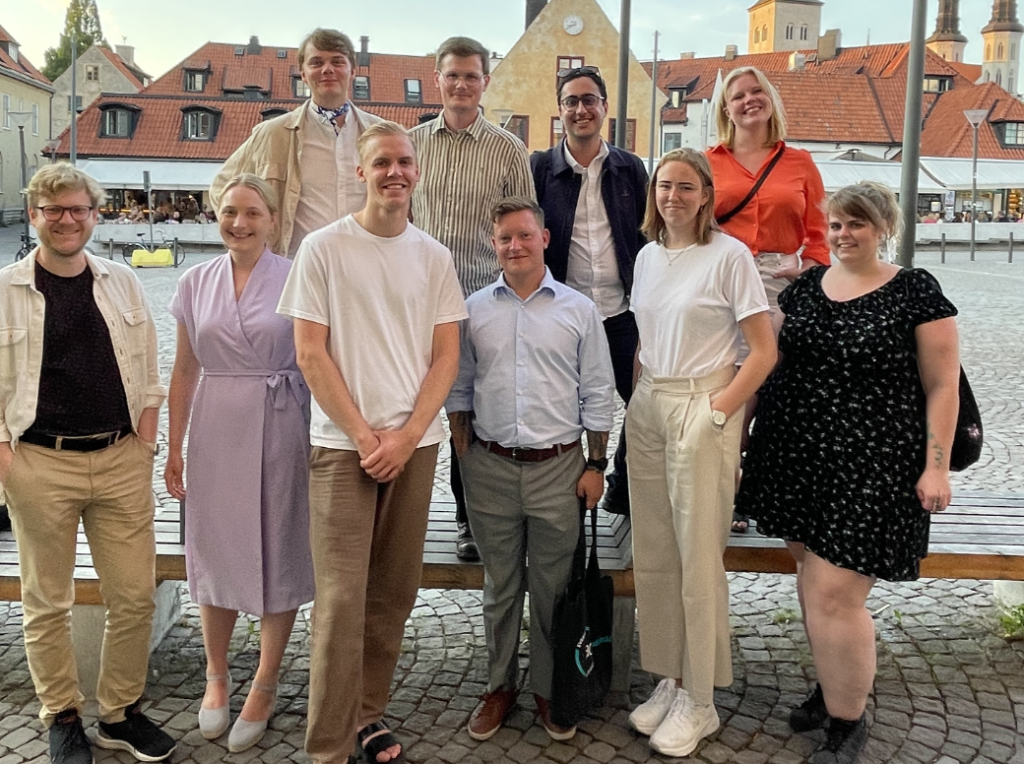
We also participated as panelists in several seminars. Among other things, about the role of higher education institutions in total defence, where Jacob opened by saying that appointing security commissioners to the boards of higher education institutions is not the answer to the question what the higher education institutions should do to contribute to total defence. Klara participated in Sweden's university teachers and researchers' (SULF) seminar on academic freedom in the constitution. Having academic freedom constitutionally protected is one joint approach as SFS, SULF and Sweden's university and college association (SUHF) has been behind it since 2022. Jacob participated in Uppsala University's seminar "How little can a university education cost?" and strongly pressed the SFS appeal that the policy must reform the resource allocation system in higher education. Klara also participated in a panel at Uppsala University on competence provision and addressed what we at SFS think is important for learning. Klara also participated in several panel discussions about student housing. In SUHF's seminar on autonomy, SFS was represented by Jacob, who raised the issue of political governance through new degree goals in the higher education regulation and how it affects students. On Thursday morning, SFS also held our traditional seminar together with SUHF, which dealt with the compensation amounts in higher education, where Klara emphasized the importance of the compensation amounts matching the actual costs of the teaching.
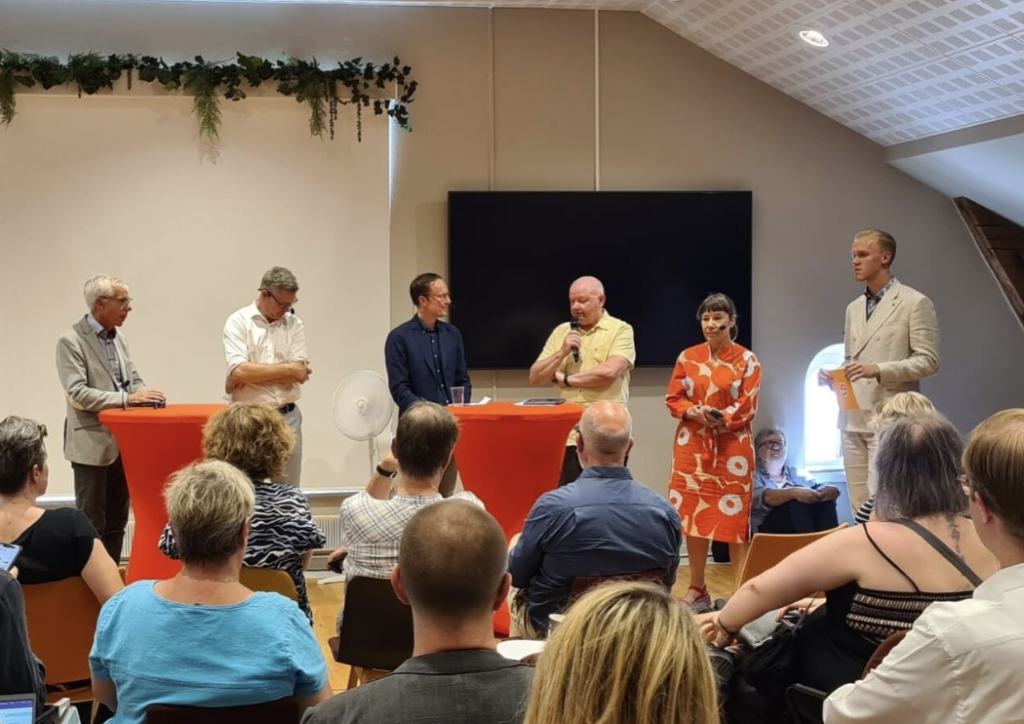
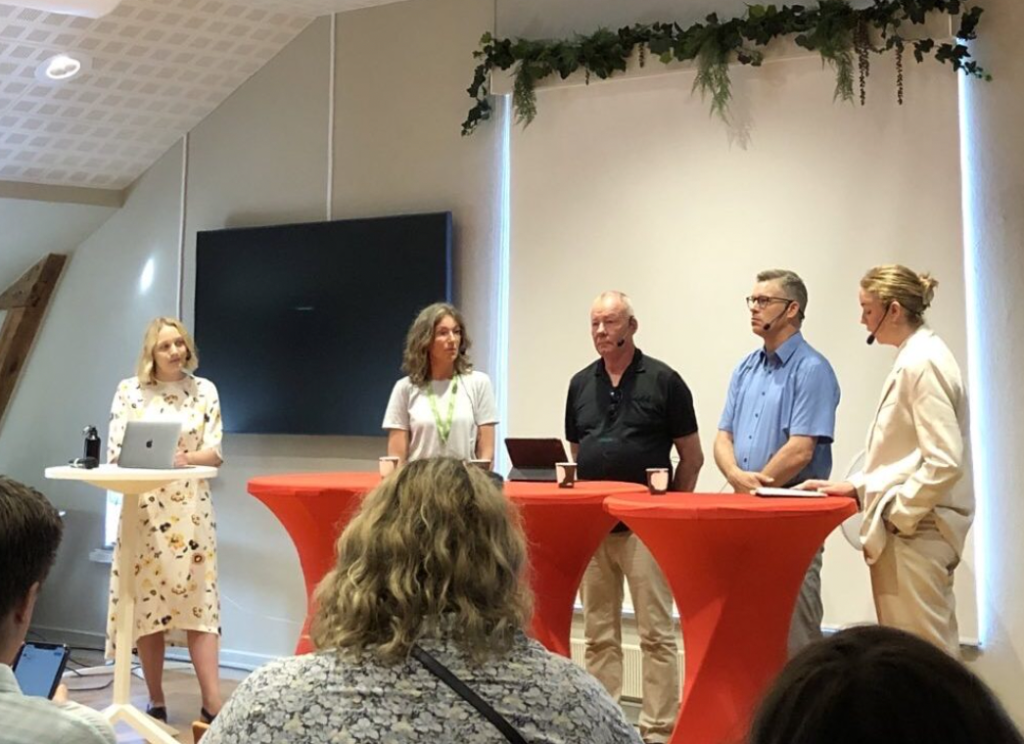
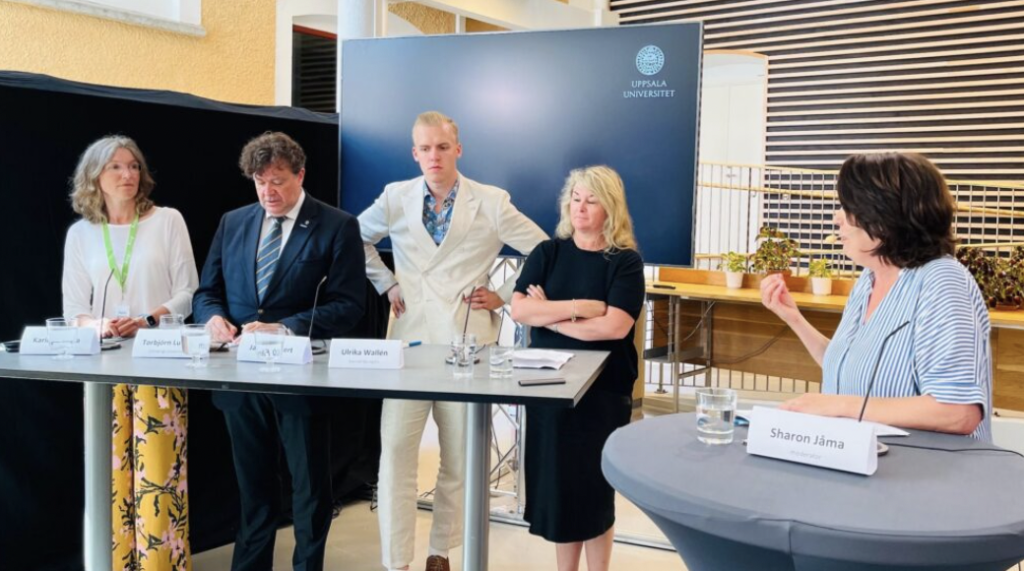
SFS seminar series
This year, SFS arranged its own seminar series consisting of four seminars and subsequent mingling. We stayed in the fantastic environment found in Drotten's ruin and during the seminars we launched either a report, memoranda or a smaller pamphlet.
The first seminar was Higher education pedagogy - What has happened in 10 years? SFS has recently launched a follow-up report From words to action - A follow-up of the development of higher education pedagogy during 2013-2023 which follows up on the demands and calls that SFS placed on the government and the universities respectively in the report The student's learning at the center - Swedish National Union of Students on pedagogy in the university ten years ago. During seminars, a panel consisting of Klara, Hannes Snabb, chairman of the liberal students' association, Anders Fällström, rector of Mittuniversitetet and member of the expert group for higher education pedagogy at the Swedish University and Higher Education Association and Karin Röding, former rector and director general, were allowed to react to the report. There were exciting conversations about the lack of initiative from the government, but also a series of difficult questions such as pedagogical skills in the recruitment of teaching staff. The issue of higher education pedagogy is part of SFS's political focus issue and is something that we will continue to highlight during the autumn and spring.
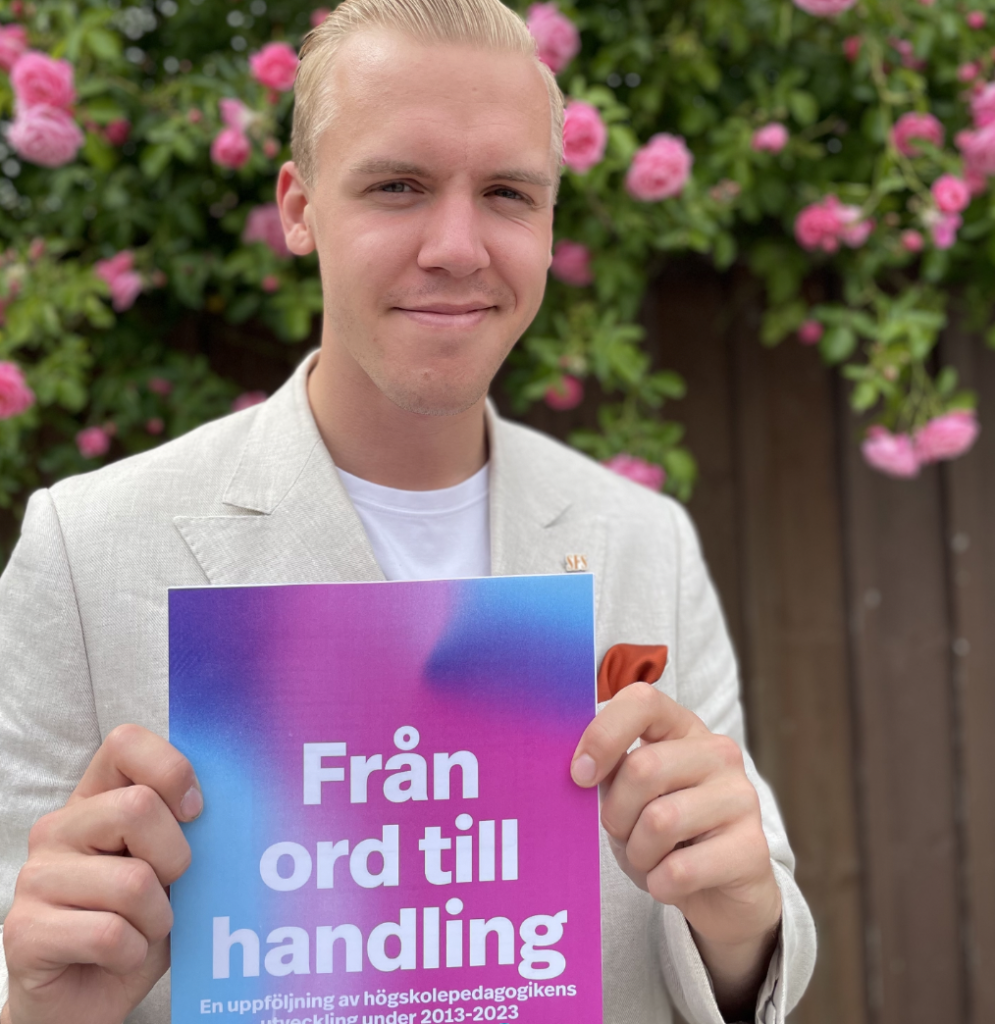
The seminar then, Stop the construction of student housing - What do we do now? launched the report For more student housing which SFS has developed together with Student housing companies. Students' difficult housing situation is very tangible and therefore we have tried to present proposals on how the policy can enable us to build more student housing with reasonable rents. The report was presented by the author Caroline Szyber, followed by a panel discussion with perspectives from both politics, the sector and students. Leif Nysmed, Member of Parliament (S), pointed out that the current student housing situation makes higher education a class issue. With Jakob Olofsgård, Member of Parliament (L) emphasized that we need to respect the current economic situation and not fuel inflation and that there are other solutions to get more student housing. Johan Knaust, managing director at K2A, which provides student housing in several locations, responded by saying that the financing issue is what determines when they decide whether to build or not. SFS chairman Linn Svärd highlighted that this issue is crucial for Sweden as a nation of knowledge.
The third seminar, How can a new system for resource allocation to the university be designed?, was based on SFS memorandum with five proposals for starting points in an investigation of the resource allocation system. Resource allocation was extensively discussed during the Almedal week, but during this seminar the discussion had to be based on SFS's concrete proposals. Coco Norén, Pro-Rector Uppsala University and Klara gave several good inputs and reactions to our proposals. But a panel of Rikdag politicians consisting of Mats Viking (S) and Cecilia Rönn (L) could not promise any changes to the current system for financing higher education.
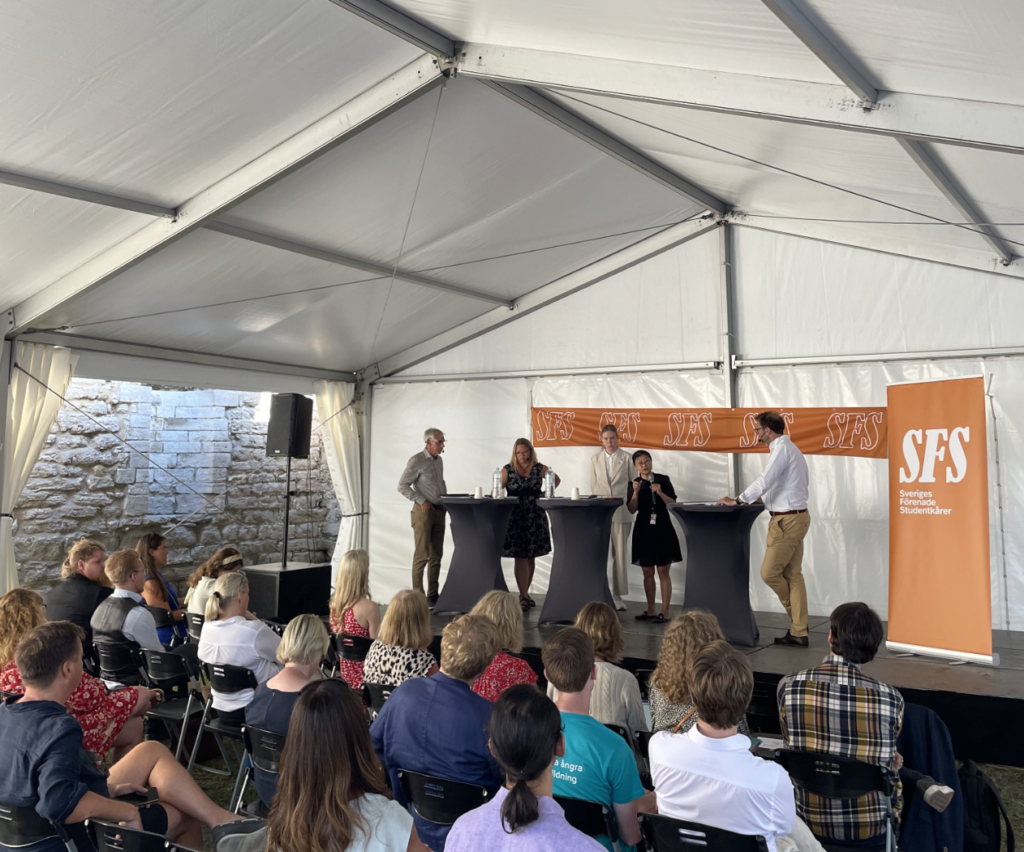
Finally, we rounded off the day with the last seminar, Sustainable research and education – the research bill from a student perspective, where we presented four important points that we believe need to be taken into account for the upcoming research bill. It is in that bill that the government describes its investments in more detail. The SFS doctoral committee has been working on the issue during the spring, and therefore the committee's chair Linnéa Carlsson presented the proposals, which dealt with, among other things, financing, internationalization, research-related education and higher education pedagogical research. The panel discussion was very much appreciated because we had perspectives from the entire sector. Representatives from the students, trade unions, various universities, research financiers and politics were allowed to discuss the proposals and how they saw the issues from their perspectives. A highlight was that all the panelists raised their hands when we asked if they wanted to see a change in the immigration law that would allow doctoral students and researchers to stay in Sweden. Now we hope for change and that the government does what has been promised!
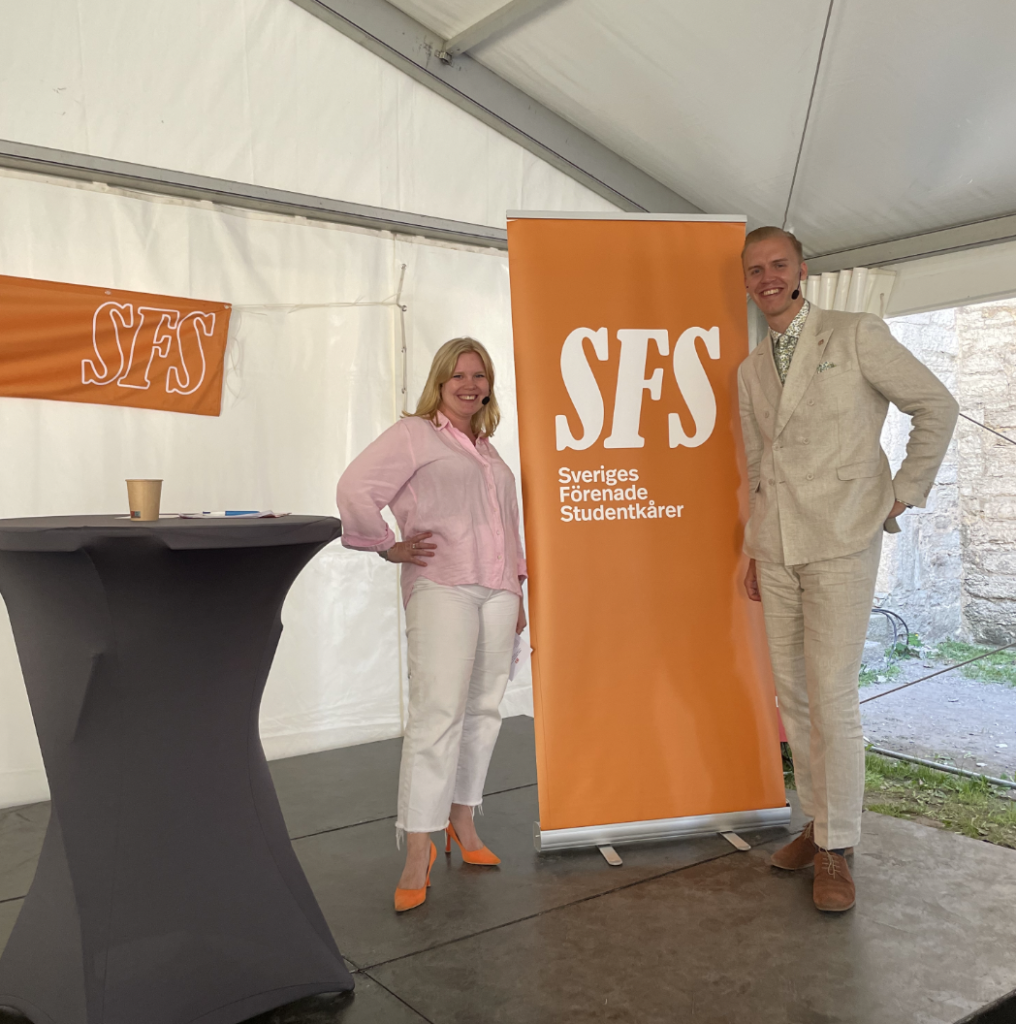
Finally, we also met with Minister of Education Mats Persson. We talked about the students' priority issues, but also teacher training and we asked about Mat's reflections on Sweden's presidency of the EU, which ended on Friday, just like SFS's year of operation. We also handed over all the reports that we launched in connection with our seminar series.
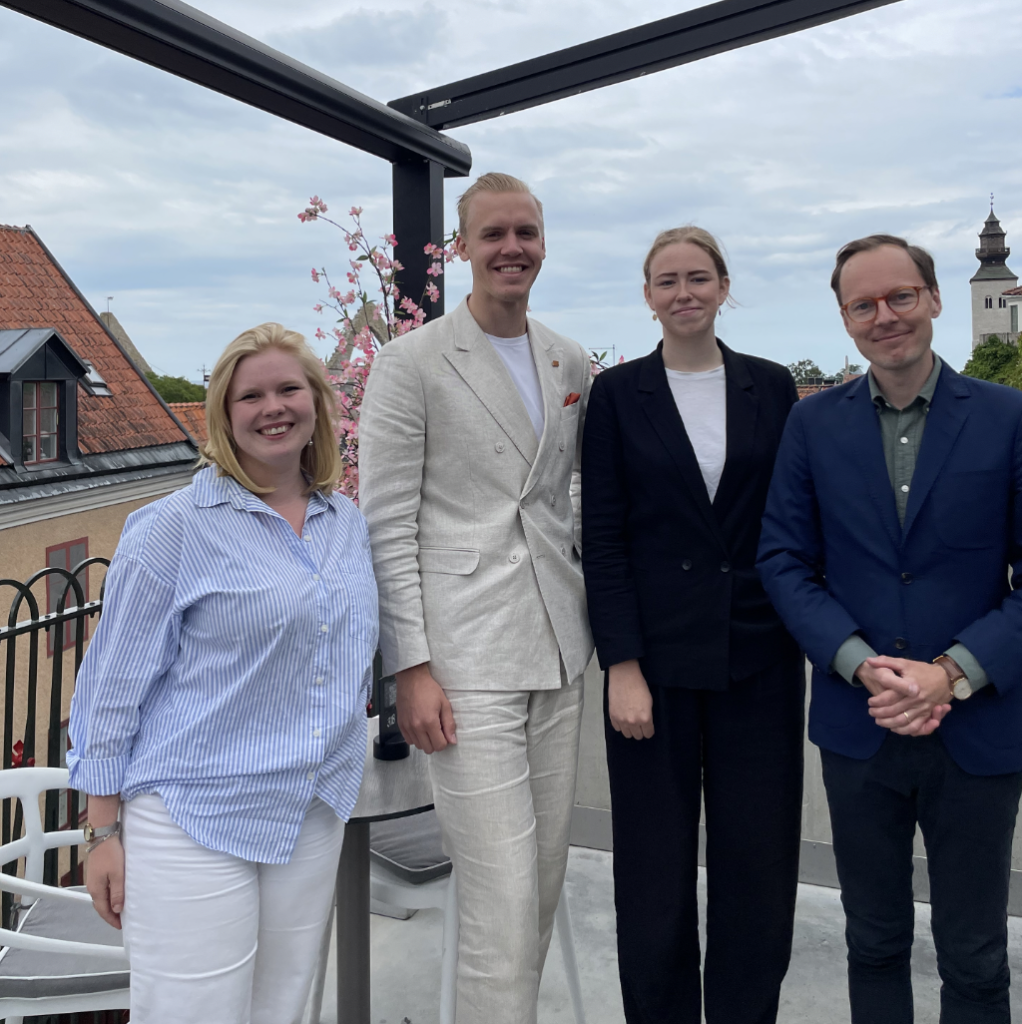
Final observations from the week
Something that we have reflected on was that there was a wide range of topics in the higher education sector that were discussed. Last year I thought there was a big focus on the 2022 election, but for our sector it was also dominated by the transition study support. This year we experienced that several issues came to the fore such as funding of higher education, competence provision, the role of higher education institutions in total defence, ethical review, research funding but above all academic freedom and autonomy which became very evident at several seminars. During the ongoing Almedalen, we also received the news that the government had decided to withdraw all of the Swedish Research Council's funding for development research, and that after several researchers had already submitted their applications. Academic freedom has been discussed a lot lately and we wonder how the discussion will develop in the future.
In summary, we are from SFS accession presidium satisfied with SFS's stay in Almedalen and with that we want to wish everyone a happy summer!
